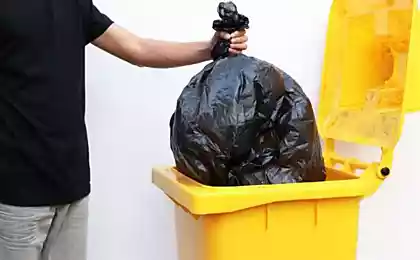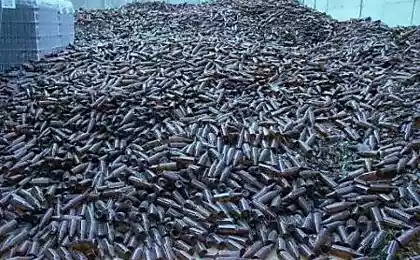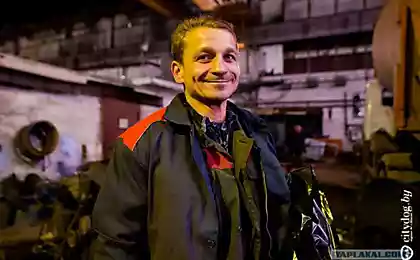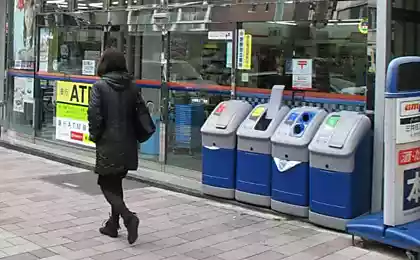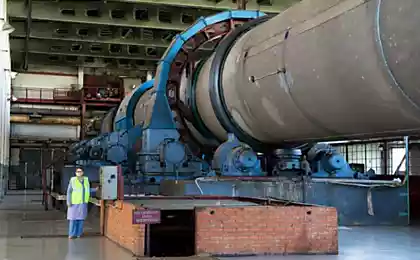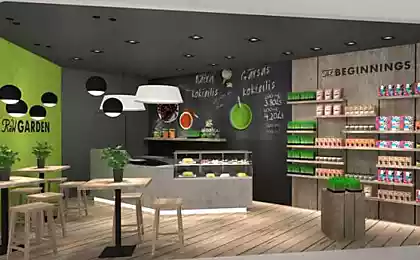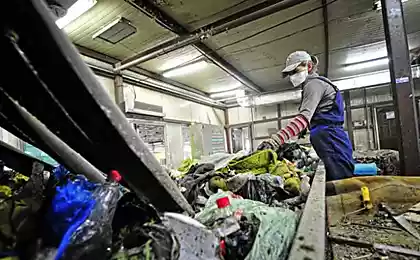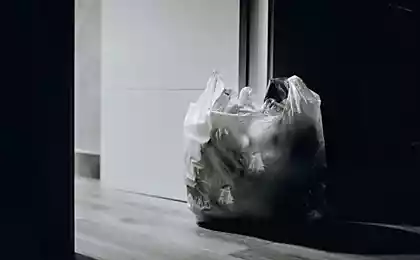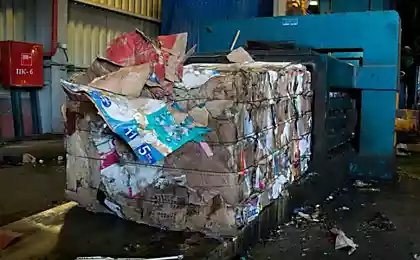751
How to build a business in the field of waste management
Garbage — a unique resource for its acquisition, and for its sale are willing to pay. In addition, this resource is inexhaustible.
Waste management is a headache for municipal authorities, potentially knowledge-intensive industry with virtually zero competition, and highly profitable business.
No region of Russia has a developed system of waste management. To understand the magnitude of the problem: at the moment the country more than 31 billion tons of waste neutiliziruemoy. Neutiliziruemoy — so such, which did nothing: not burned, not buried and not processed — they are simply in the territory of Russia.
The problem of waste disposal in the 21st century seems especially ridiculous because at every stage of this process, you can make money literally from nothing.
The legal side of the question of Public participation in recycling is ecological supervision, licensing, organization, reporting, monitoring performance standards and application of tariffs for garbage disposal.
Legal regulation of relations garbage (the Federal law "On wastes of production and consumption") is due to five classes: "extremely dangerous" wastes the first class to "virtually harmless" the fifth. Categorization is based on the level of damage to the environment (examples in order of decreasing damage: mercury, asbestos dust — oil, acid, pig manure, diesel fuel, tires, paper — shell, sawdust), but for business analysis it is more convenient to group the classes by birth. The first three classes — industrial and construction waste, and the fourth and fifth household (the so-called MSW — municipal solid waste).
The owner of the waste of 1-4 classes may transfer the right of disposition to the person only at presence at the respective licenses: in their use, neutralization, transportation, accommodation. From 1 January 2016 any unlicensed activities of this kind will be considered illegal. In addition, all people involved in such business, must have a certificate confirming their training.
To determine what class of waste will have to deal with, their owner (legal person) must order the examination. Besides the fact that garbage is property, he has got a passport. About a fifth of solid waste, non-hazardous class the law doesn't say anything. Thus, there are no permits is not necessary if the business operates with food waste, metals, waste paper, wood, plastic containers, plastic film.
There are several stages of disposal and recycling of solid waste.
Transportation a Priority for waste management is their immediate removal from the customer's site.
Company canadian Scudamore Brian (Brian Scudamore) started with a used truck for $700 and the slogan "We'll stash your trash in a flash!" ("Will destroy your garbage in the blink of an eye!") in 1989. Hoarding money for College, Kudamon in his spare time took away the debris, which could not cope local authorities. Free from the problem clients are willing to pay, and the owner eventually chose a garbage study. Today the annual revenue of his company 1-800-GOT-JUNK is more than $100 million, and the franchise act in the USA, Canada and Australia.

Pros: no need to rent, complex equipment and expensive specialists.
Cons: significant expense account for fuel costs. In addition, to unload the garbage to the curb will not work, need to negotiate with the landfill for disposal.
Profitability: the cost of export of a standard container (0,8 cubic meters) in Moscow — from 330 rubles. In a garbage truck comes 25-60 such containers. Pricing in this area is governed by the laws of the market, but is heavily dependent on tariffs for storage (disposal) of garbage.
Starter kit: vehicles, drivers.
Competition: garbage collection individuals included in the "maintenance of the dwelling" and is administered by the municipalities in the service legal persons the competition is quite high in Moscow alone was around 500 formal firms.
Features: the main problem of this business is to reduce transport costs. The solution is achieved in two ways, both associated with an increase in storage capacity of garbage containers: garbage truck with the press (at times increases the performance of transportation and reduces the cost of burial), the box with the press (favorable for the customer, because it reduces the frequency of waste removal).
Pressing the Development of urns with press in 2004 took an American company, Seahorse Power, demonstrating to the world the offline the pressing installation of BigBelly solar. The operation of the press based on the transmission chain without the use of the principles of hydraulics, and the unit maintenance limited to annual greasing of the locking mechanism of the door.
Wireless alert system allows you to automatically track the occupancy level of the container, giving additional opportunities to improve the logistics process. The price tag on the device (us$3.1–3.9 per thousand) can be considered as a long term investment, since the container capacity is five times higher compared to a conventional tank.
The company is currently estimated at $5 million.
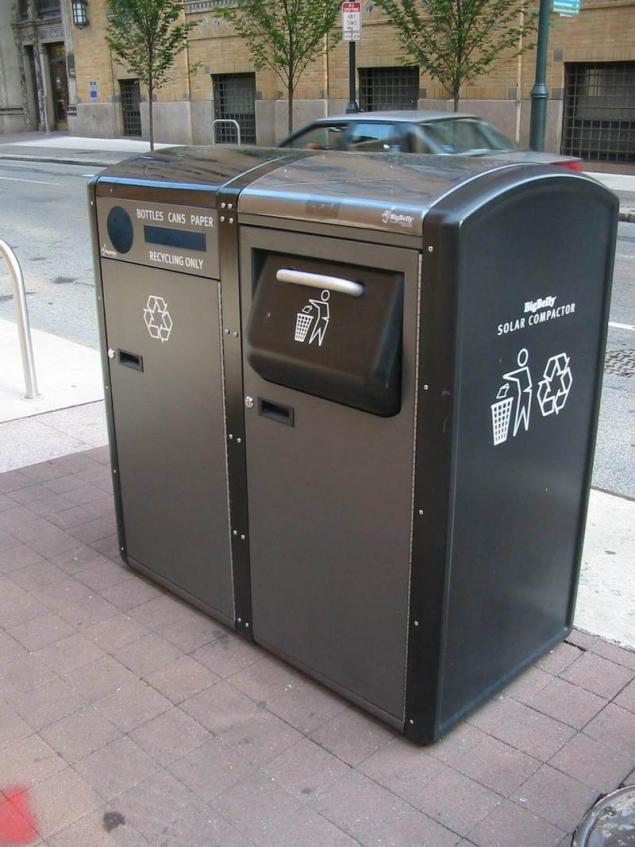
Despite the importance of timely removal of waste and its compaction, the above manipulations do not address the main problem: the garbage needs to be stored somewhere or destroyed.
Waste can be viewed as trash, to be rid of, and also as a resource. These opposite principles are two approaches to handling garbage.
Placement of Placement of waste — storage or disposal: garbage from an uncertain fate need somewhere to store, burial implies a complete isolation to prevent any interaction with the environment.
Pros: the business for the lazy.
Cons: the rapid exhaustion of the area (city of one million is required annually additional 40 ha), relatively low profitability (since the rates for disposal is determined by municipality).
Profitability: the dumping of tons of solid waste in Leningrad region worth 400-1000 rubles, depressi garbage truck at a time can bring from two to ten tons.
Starter kit: a few acres of free land outside of the settlement, water protection and recreation zones.
Competition: in Russia there is officially 1092 polygon, filling almost all now approaching or exceeding 100%.
Features: the landfill must have a waterproof bottom and wind protection, so ideally it should be built. However, most polygons have a "natural" origin, such as Krasny Bor in the Leningrad region, located over deposits of clay. It was assumed that the clay protects the groundwater from toxic substances — was not.
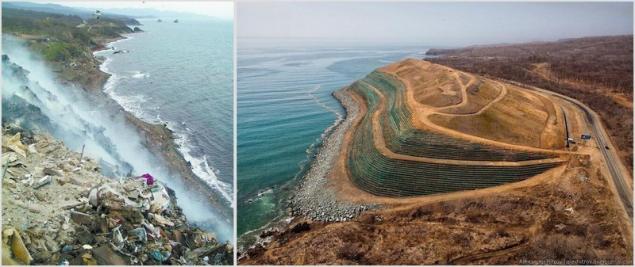
Natural landfill in Vladivostok, Bukhta Gornostay. Right — he's after reclamation (construction of the sarcophagus). Sources: vladnews.ru, alexhitrov.livejournal.com Legal details: must obtain permission to create a host (confirms compliance with geological, hydrological and other guidelines), to place the polygon in the unified state register and monitor the environment — even after the operation.
Incineration In most cases, the ignition gets illegal — that though as-that to unload the polygons. Legitimate waste incineration plants today in Russia only about ten.
Low competition should not create illusions: although it is expected to achieve a profit at the expense of associated energy generation, the majority of incineration plants are exceptionally subsidized because the burning of solid waste by all the rules — the procedure is extremely expensive. Therefore, to consider recycling as a business it would be overly optimistic.
The only advantage of incineration is to reduce volume of waste by 90-95%, that is to save space at the landfill, however, this cannot justify the enormity of the damage that is applied ecology.
Those who came up with the idea of more progressive waste management need to be ready for the next obstacle: the fact that Russia is the burial of a charged state and is charged cheap — discourages people to seek any alternative methods of disposal. For comparison, in the US, the burial and burning of waste is three times more expensive processing.
Sort Any processing is impossible without sorting. A large part of the recyclables loses consumer properties while mixing in a common container — paper, for example, dampen and rot. Therefore, recycling is the most effective (and simple to implement) if the sorting is carried out at the stage of garbage collection, so can be reused up to 60-80% of household wastes. However, this requires a review of all paradigms disposal (well-known project in this area — the Japanese concept of Zero Waste).

The final product sort of the Pros: demand for sorting high enough, you can find a buyer abroad (e.g., Swedes and Danes import waste from Germany and Norway for the production of electricity).
Cons: expensive equipment — a full waste sorting complex is in the region of 4 million rubles. The costs of organization of separate waste collection in one of St. Petersburg cost 1.5 billion rubles.
Profitability: depends on the quality of raw materials. In rubles per ton: waste paper — from 500 to 10000, glass — 2000-3000, plastic — 4000, black scrap — 8000.
Starter kit: an indoor unit (grinder, press, conveyor, crusher etc.), workers, (not required) fleet.
Competition in Russia was only 50 waste sorting complexes.
Features: sorting can be implemented in the form of buying certain types of waste (sorting at the stage of collecting). It is less profitable, but does not require any expensive installations.
Recycling Recycling — everything that turns trash into something useful, whether it's energy, new materials, fertilizer and so on.
Composting the simplest option is composting — recycling organic waste into a uniform brown dust and odourless, improves the properties of soil. Is to accelerate natural processes of decomposition and can include up to 30% of solid waste (food, grass, manure, cardboard, sawdust). Does not require any sophisticated equipment, a compost heap needs only mixing and moisturizing.
Pyrolysis Pyrolysis is the thermal decomposition of waste that occurs without oxygen. Differs from ordinary combustion by the fact that the output, in addition to recycling, allows to obtain electrical energy, gasoline, diesel fuel and heating oil (similar to oil). The quality of the product of pyrolysis depends on the composition of the MSW, therefore, a crucial role is played by pre-sorting. This form of processing has many advantages: it is environmentally friendly, reduces the volume of waste and provides thermal energy that can be used.
The cheapest is the processing of moneyrea. A successful example is the Danish company Gypsum Recycling International. GRI was founded in 2001 and thanks to an ingenious collection system, logistics and patented mobile processing technology today is a world leader in the efficiency of recycling (the process of returning the waste, discharges and emissions in the process of technogenesis — approx. ed.), giving a second life to 80% of the gypsum waste.
Pluses: high profitability and demand for secondary raw materials, low level of competition, foreign investors ' interest and favor of the authorities, a pretty quick payback (from two to five years).
Cons: requires a large initial investment (the account goes on tens of thousands of dollars, in the case of complex processing of millions, you can save money on used equipment), there is no guarantee full capacity utilization of such high-tech plants, as the system of garbage collection in Russia today is extremely chaotic.
Because of the immaturity of the market price for recyclables is very unstable with increasing demand, the suppliers no longer deal with waste collection and prices have skyrocketed up, with the fall in demand product quickly accumulates and fills the storage in connection with what is sold at bargain prices.
Profitability: very high, especially if the processing plant is also the manufacturer of the product from recycled materials. For example, buying a ton and green cullet for 2000 rubles, reworking it in the glass powder, and then blowing a batch of bottles, and selling each for 50 (approximate price in Moscow), to help out in the end, about 100 thousand rubles.
Starter kit:the production premises area of not less than 200 square meters, warehouse area of not less than 100 square meters, equipped in accordance with sanitary and fire requirements, installation, technology and manpower (optional) fleet.
Competition: in Russia, the total volume of waste is recycled only 5%, while the MSW consist of 50% of the raw materials that can be recycled. The country was 243 recycling plant, and none of them carries out a complete cycle of processing.
Features: the efficiency of waste recycling depends on the quality of sort, so the best waste-processing complex is a complex system established from collection and sorting to sales to the consumer. Here not to do without close cooperation with the authorities and a campaign for a culture of waste management.
Legal niceties: permission required for processing.published
P. S. And remember, only by changing their consumption — together we change the world! © Join us at Facebook , Vkontakte, Odnoklassniki
Source: vc.ru/p/recycling




